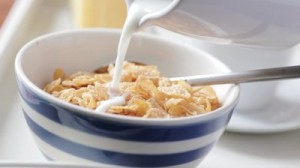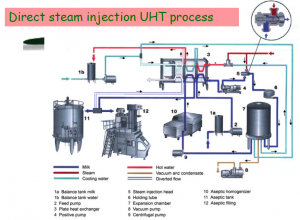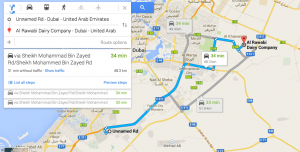Cereal & Milk
Processing:
Cereal Ingredients:
Milled corn, sugar, malt flavor, contains 2% or less of salt. BHT added to packaging for freshness.
Vitamins and Minerals: Iron, vitamin C (sodium ascorbate, ascorbic acid), niacinamide, vitamin B6 (pyridoxine hydrochloride), vitamin B2 (riboflavin), vitamin B1 (thiamin hydrochloride), vitamin A palmitate, folic acid, vitamin D, vitamin B12.
The minerals presented above are all developed from food processing and oil is used for food processing.
“Cereal uses four calories of energy for every calorie of food energy it produces. A two pound bag of breakfast cereal burns the energy of a half-gallon of gasoline in its making.” I consume close to 56g of cereal during breakfast every morning. In other words, 0.0308 gallons of gasoline is used every morning for my breakfast.
Milk ingredients:
Fresh cow’s milk, min. 3% milk fat, min. 8.5% non-fat solids, vitamin D’s.
The processing of milk includes: steam processing, cold processing, power transformer station, waste water treatment and others. The steam processing itself uses up to 240L a day (depending on the size of the plant as well). I was unable to determine fuel consumption among the other processes, nonetheless the steam processor uses close to 7200 litres of fuel a month.
The picture below identifies the steps taken in the steam processing of milk:
Delivery
Richard Manning, the author of The Oil We Eat has summarized not just mine but everyone’s food diet. My breakfast along with other meals is highly dependent on the movement, production and distribution of oil. Gasoline and diesel are the key ingredients towards the production and delivery of my breakfast. They are also used in the distribution and spraying of herbicides and pesticides that help maintain the grains that I consume for breakfast.
I pick up both cereal and milk from the community supermarket, Carrefour. While I was unable to trace the origins of the cereal, Al Rawabi milk I assumed comes from the Al Rawabi dairy farm in Dubai. As the picture illustrates, the distance from Al Rawabi dairy farm to my community supermarket is 48.3km. Every trip, approximately 7 litres of fuel is used.
Packaging:
Fact: plastics form a bigger part of our daily lives than our own mother
While the outer layer of the cereal is made from cardboard, the inner packaging is made from polyethylene (plastic). Plastics are also used for packaging the milk I consume with cereal during breakfast.
Conclusion:
Oil plays a major role in my daily breakfast. The cereal and milk I regularly consume is processed, delivered and packaged from fossil fuels. It is shocking to witness how dependent my first meal is on fossil fuels.


